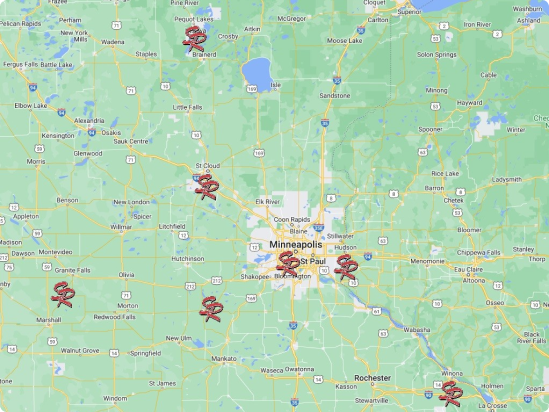Winter weather brings many challenges for homeowners, from snow accumulation to ice buildup and cold temperatures. While some problems are easily fixed, others, like damaged windows, require professional attention. Your windows protect against rain, hail, sleet, snow, and other environmental hazards. They also take the brunt of severe weather events. Winter weather can do a number on your windows, so watch out for these types of damage as temperatures dip and severe weather rolls in.
Damaged Seals Due to Temperature Changes
During cold weather, the seal between your window and frame expands, which can cause damage. This is especially common with double-hung windows. If a storm settles in or winds pick up while the temperature drops, you may notice your window sashes falling unevenly or tilting slightly. This puts additional strain on the window frame and sash, which may lead to more serious problems down the road. Window repair companies suggest replacing worn-out seals for more consistent, professional-looking repairs.
Water and Moisture from Ice and Snow
If snow accumulates on your windows and then melts over time, it can soak into unprotected windows (especially wood windows that have not been properly stained or painted) and cause internal damage. Older windows are very susceptible to this as they often have more vulnerable areas. If your windows rot and grow mold on the inside, they will eventually have to be replaced.
Warped Materials Due to Freezing Temperatures
If there’s a significant temperature drop overnight and the temperature reaches its daily low before sunrise, the window material will warp downward as it cools off. This will not happen overnight, but constant temperature changes over the years can impact the materials of windows, especially if they are of lower quality. Eventually, your windows will warp and allow cold air into your home. Repair will no longer be an option. Old and warped windows always require a full replacement.
Falling Ice from Rooftops
Snow and ice can slide off your roof and cause damage to the frame and glass of your windows. This is especially dangerous if your windows are located near roof overhangs. Vinyl windows may be more susceptible to shattering than aluminum, wood, or composite because the material is softer than other options. To prevent this, make sure you clear snow and ice off your roof at regular intervals.
Exterior Caulk Pulling Away
If the weather is especially cold and falls below freezing, your caulking may come loose. This can cause leaks in your windows as the caulk prevents water penetration from the outside of your home. Caulking that hardens when it freezes can also pull away from the house as it warms up when the temperature increases. Always make sure to redo the caulk on your windows every year to prevent this. Otherwise, window replacement will eventually become the only option.


